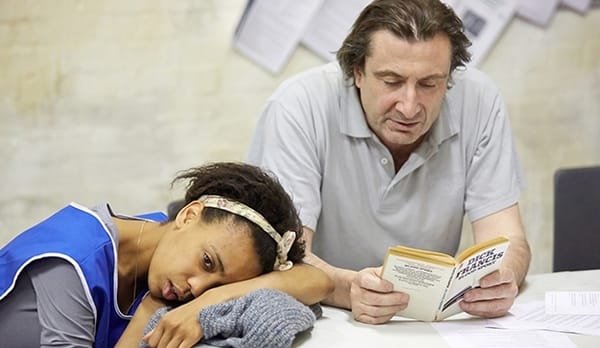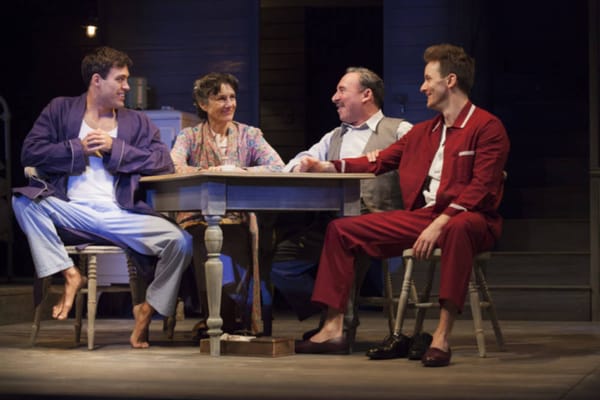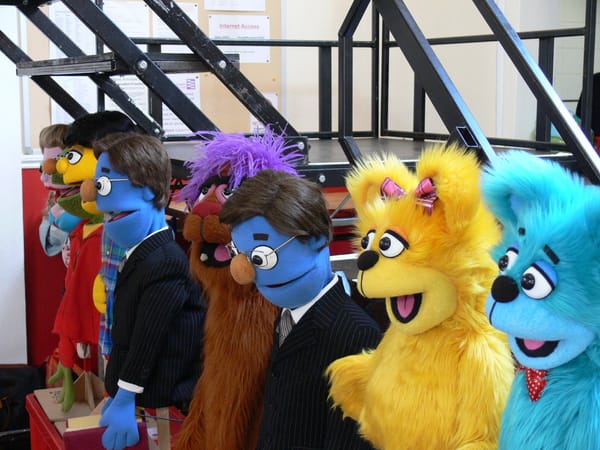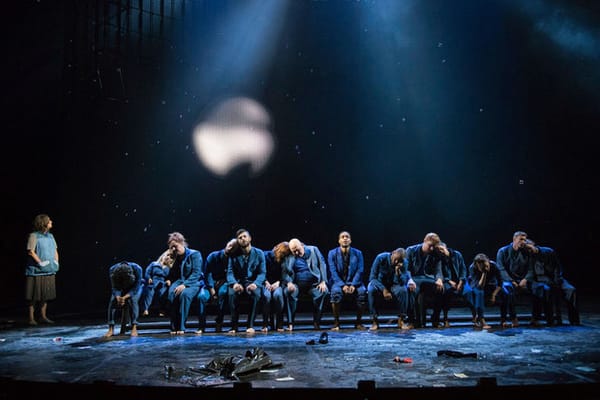Coming down with a bad case of the Twits
Jack Steadman is less than enthused by the Royal Court's latest
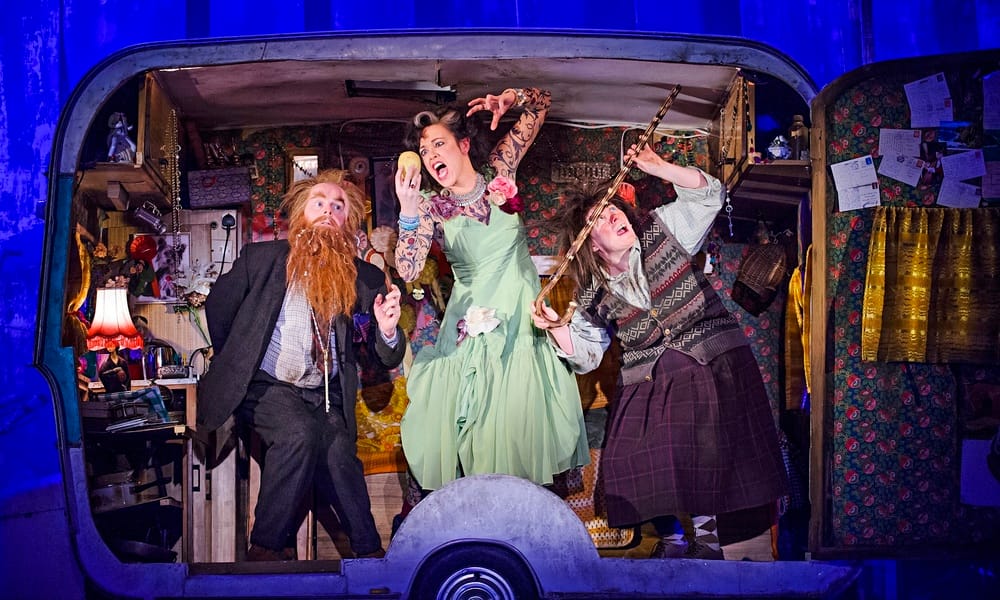
Roald Dahl’s made a bit of a resurgence of late, with _The Twits _representing the third adaptation of his works for the West End stage in four years. It follows on from Tim Minchin and Dennis Kelly’s musical adaptation of Matilda, and Sam Mendes delivery of _Charlie and the Chocolate Factory _in big-budget, musical form. Enda Walsh’s “mischievous” adaptation is therefore the first of the three to not be a musical, perhaps a touch unsurprising given its home at the Royal Court. It still features its fair share of music, though, and even a spot of singing, so fear not. It’s not quite all change in the world of Dahl adaptations.
_The Twits _is a very different book from its fellow adaptees, however. It’s a much darker tale, with a pair of genuinely disgusting protagonists in the eponymous Twits. There’s no goody-two-shoes character whose journey the book charts, there’s no real sense of hope, it’s all a bit depressing up until the end, really. There’s also no children involved, which – for better or for worse – means there aren’t any children on stage in this one. Still plenty in the audience, mind.
The fact that this is an adaptation of a beloved children’s book by a beloved children’s author naturally means this play is inherently targeted at children, an audience who aren’t renowned for their solo theatre-going skills. Or, in fact, for anything much beyond being children and one day growing up. To that end, the play needs to attract adults too, which leaves it aiming for that somewhat Pixar-esque goal of pleasing young and old alike.
"The Twits lacks both the hilarious songs and excessive budget of its fellow Dahl adaptations."
On stage, the results of this need and aim can probably be summarised as ‘mixed’. _Matilda _succeeds by being uproariously funny – the music and lyrics are by Tim Minchin, for crying out loud – while _Charlie _succeeds by being little short of awe-inspiring. They pumped money into that thing. _The Twits _lacks both the hilarious songs and the excessive budget, and despite the best efforts of all involved it starts to flouder as a result.
The set design is ingenious, flicking between two main states of inside the Twits’ house and outside through the medium of a drawbridge, with its one real moment of triumph coming late on in the play. It’s very, very cleverly put together, and looks rather impressive, although it lacks the wow-factor that the likes of _Birdland_previously achieved in the same building by simply dunking the entire stage in a water tank.
The cast give it their all to make sure the play succeeds, with the Monkey Dad and Monkey Daughter of the captive family of monkeys (yes, that’s a thing in this play) being stand-outs amongst the supporting cast. Aimee-Ffion Edwards is hugely endearing as the Daughter, while Glyn Pritchard makes immediate efforts to steal the show as the Dad. The rest of the cast are all game, and throw everything at it – it’s just a shame they feel a little let down by the script. “Mischievously adapted” feels like a grand claim here, as the script veers between the needlessly wordy and the desperately-trying-to-be-funny, with the majority of the humour coming from the physical rather than the verbal. It’s odd, too – the script itself is far more lively on paper, with some truly ingenious stage directions. Mrs Twit is at one point described as “a one-eyed Scarlett Johansson”, for starters.
The lead performances, meanwhile, are truly spectacular to watch – Monica Dolan and Jason Watkins are spectacular as the Twits, bringing a manic energy to the whole thing. The stage fizzles whenever they appear on it, and they are responsible for (almost) all of the plays best moments, ranging from a disturbingly rock-and-roll version of ‘O Little Town of Bethlehem’ to multiple instances of frying-pan based violence. The theme music (essentially ‘twittwitstwitstwits’ repeated other frenetic guitar strumming and drum bashing) that accompanies their arrivals soon grates, however. It’s one of the most painfully obvious moments where the play explicitly targets the younger segment of the audience, temporarily alienating the older portion in the process.
"I'd say I pity the parents, but they did choose to have children."
It works for the kids, though: I caught at least five separate instances of small children chanting ‘twitstwitstwitstwits’ as the audience made their way out of the theatre. Exciting for them, less so for their parents. I’d say I pity them, but they did choose to have children.
On a serious note, it’s a genuinely brilliant thing that _The Twits_left the children in the theatre as enthused as it did. Most children’s encounters with the theatre consist of a seasonal panto (usually of dubious quality), and then the occasional encounter with Shakespeare (usually of variable quality). It’s vital that children get to see how exciting, visceral, life-affirming and generally essential theatre can be, and so getting them engaged with real theatre is incredibly important.
"Children enjoying and remembering a trip to the Royal Court matters."
That’s not to say that panto isn’t real theatre, it’s more that _The Twits _takes place in the Royal Court, one of the foremost, critically-acclaimed theatres in the country. Children enjoying and remembering a trip here matters, and hopefully in a few years time, as they start to develop interests in more mature works, they’ll come back – and keep coming back, and help keep theatre alive. More than anything else that takes place in, that enthuasiasm it leaves with young children, that enjoyment for the magic of theatre, that’s what really counts. That’s the legacy _The Twits _will leave.But for all that, I just wish it was a better play.
The Twits is at the Royal Court until 31st May. Tickets from £10, available online.


